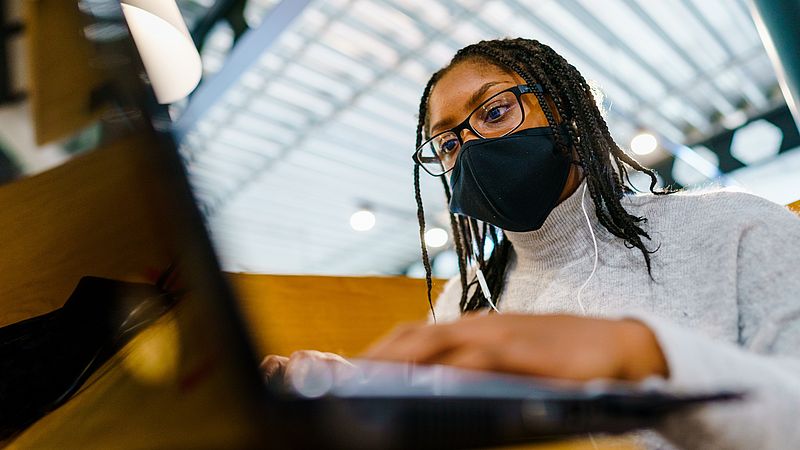What everyone feared: that young people would mentally sink through the ice due to the pandemic and the measures, has not happened in large numbers. Research by Tilburg University paints a surprisingly positive picture.
Peter van der Velden is professor of victims and mental health at Tilburg University. His research over several years shows that the corona pandemic had a much less negative impact on the mental health of young people than we thought and has been discussed in the media.
Young people more resilient
“It hasn’t been fun, but that doesn’t necessarily mean that young people become depressed or anxious,” he says. According to Van der Velden, young people and people in general are very resilient to stress or difficult circumstances.
“We are not saying that there are absolutely no young people who are anxious, lonely or depressed, just the percentage is not greater than 15 years ago.”
‘Pretty fixed percentage’
Van der Velden looked at the mental health of young people in 2012, 2016 and 9 months after the start of the pandemic in 2020. In 2002, young people indicated more mild anxiety and depression than before.
“But such an increase has happened before, also for corona. It seems that there is a fairly fixed percentage of people with serious mental complaints, which has not increased due to corona. And around that are the mild complaints that are vary the time.”
About the study
The study of mental health is a long-term study among 850 adolescents from Centerdata and Tilburg University. For this study, three groups of 16 to 20-year-olds were compared: from the end of 2012, from the end of 2016 and from the end of 2020.
The study shows that at the end of 2020, 32 percent of adolescents were struggling with mild anxiety and depression symptoms. This was 20 percent among adolescents at the end of 2016 and 24 percent among adolescents at the end of 2012. Although the percentage of adolescents with mild complaints has increased, the study does not show that this increase in the months after corona was stronger than the increase in previous years.
Furthermore, it appears that although adolescents made more frequent use of mental health care in 2020, there was already an increase in the years before that. Overall, the results indicate that the coronavirus pandemic had a very limited negative impact on the mental health of 16- to 20-year-olds.
–
–
Notification from agencies
It is a special outcome because all kinds of serious sources during the pandemic indicated that young people did indeed suffer from the pandemic and the measures.
For example, the Netherlands Youth Institute, which wrote on its website in February 2022: “Studies confirm that, more than other age groups, young people and young adults experience mental health problems such as loneliness, gloom and anxiety as a result of the corona measures.”
also watch
No deteriorated mental health
And the CBS health survey was dismal, too. It states that in the first two quarters of 2021, 15 percent of the population aged 12 years or older was psychologically unhealthy: the lowest percentage since 2001. And 4 in 10 young adults indicated that they were more depressed than before the corona crisis.
But research by Tilburg University shows that if you compare the mental health of young people at different times, over a longer period of time, there is no visible deterioration in mental health during the pandemic.
also watch
‘Young people who are not doing well determine the image’
“What we have known for a long time is that many people are resilient to stress and difficult circumstances. The stories you hear are always the feathers of people who are not doing well. But the picture that arises is distorted,” says Van der Velden.
Van der Velden made the last measurement 9 months after the start of the pandemic. It is therefore possible that the major mental blow came later due to the duration of the measures. Van der Velden: “That could be. But when we came up with the first study, people said: you don’t find anything now, but that will come. People kept saying that. But it just hasn’t been the case, until now.”
Researcher Peter van der Velden about the outcome of his research in EenVandaag on NPO Radio 1
–


